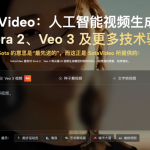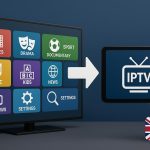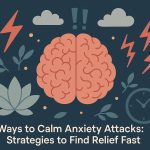Introduction to Online Learning
Online learning offers flexibility and accessibility for nontraditional students, professionals and those limited by geographical, financial or time constraints. Effective learning strategies are crucial for thriving in online education. Online courses require self-discipline and management skills and students must navigate the virtual space efficiently. Challenges include digital distractions, lack of motivation and feelings of isolation, making the need for effective strategies more prominent.
The Importance of a Structured Learning Plan
A well-structured learning plan is essential for success in Ohio online degree programs. It guides students through course material, assignments and assessments, ensuring they stay on track and meet academic goals. A structured approach can increase student engagement, reduce procrastination and foster a sense of control. By preparing accordingly anxiety is minimized and focus is enhanced. In a regular classroom, tackling online learning calls for discipline, perseverance and a proactive attitude. Academic success may be greatly impacted by a systematic strategy.
Effective Time Management Techniques
Balancing work, family, and academics can be challenging, making time management crucial for successful online learning. Techniques such as the Pomodoro method, time blocking, and the Eisenhower matrix can help in prioritizing tasks and managing time efficiently. The Pomodoro technique breaks study sessions into 25-minute intervals, while time blocking designates specific periods for different tasks, ensuring adequate focus on each subject. The Eisenhower matrix is a valuable tool for task management, dividing tasks into four quadrants: urgent & important, important but not urgent, urgent but non-essential, and non-essential. By focusing on urgent tasks, you can avoid unnecessary stress and cultivate a balanced learning environment. Research highlights the matrix’s effectiveness in stress reduction and productivity enhancement. By mastering time management, you can optimize your learning experience, achieve academic success, and maintain a healthy balance with other life commitments.
Leveraging Tools and Resources
The digital age offers numerous online learning tools including video conferencing software, interactive platforms and interactive modules. These tools enhance understanding of complex concepts and facilitate collaboration with peers and instructors. Additionally, discussion forums, recorded lectures and e-books can supplement studies allowing for interactive learning, review flexibility and the elimination of physical textbooks. These tools enhance the learning experience and provide comprehensive academic resources.
Psychological Benefits of Online Learning
Online learning offers psychological benefits beyond education such as self-discipline, motivation and confidence building. Its flexibility allows students to learn independently, reducing anxiety and creating a positive learning environment. Online learning environments cater to different learning styles, enhancing understanding and retention for visual, auditory and kinesthetic learners. This tailored approach boosts academic performance and increases satisfaction and enjoyment in learning. Studies show higher satisfaction levels and a greater sense of accomplishment among students. Online learning also provides independence, ownership and responsibility, creating a stress-free and balanced learning environment.
Best Practices for a Balanced Learning Environment
A balanced learning environment is crucial for productivity and mental well-being. A balanced learning routine includes a dedicated study space, regular breaks, a healthy work-life balance and incorporating physical activity, social interactions and relaxation techniques. A quiet, organized, distraction-free area is essential for focus and information absorption. Regular breaks such as standing up, stretching or walking enhance cognitive function and prevent burnout. A well-rounded routine includes hobbies, exercise and social activities, promoting mental and physical health. Stress management and enhanced attention may also be achieved by implementing relaxation techniques such as mindfulness and breathing exercises.
Conclusion
Online learning provides students with numerous opportunities to excel and achieve their educational goals. By implementing structured planning, effective time management and utilizing available tools, students can optimize their online learning experience, thrive in their academic pursuits and benefit from the flexibility and resources provided by online education platforms.
Lynn Martelli is an editor at Readability. She received her MFA in Creative Writing from Antioch University and has worked as an editor for over 10 years. Lynn has edited a wide variety of books, including fiction, non-fiction, memoirs, and more. In her free time, Lynn enjoys reading, writing, and spending time with her family and friends.















